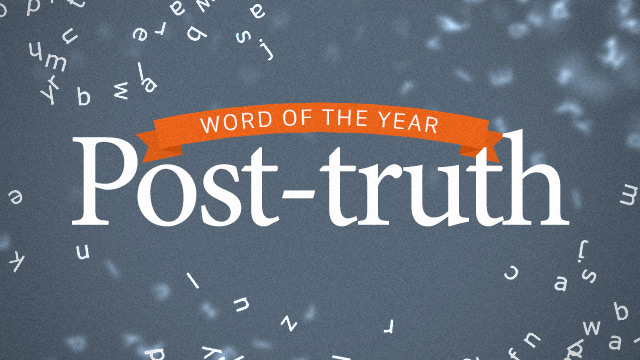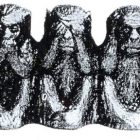“Post-Truth” is the Anti-Poetry of Our Time: Why I’m Reading Carmen Tafolla ahead of 2017
 The humanity of Carmen Tafolla’s poetry collection, Salsa and Sonnets (Wings Press) brings me back to the year I was living in Mexico City when in 2014, forty-three Ayotzinapa students were disappeared and presumably killed. I remember one of the more depressing things of that entire year—and well into this one—was the way the Mexican government handled the cover up, the way they tried to smooth the scandal over by proclaiming the official “historic truth” of what happened to those students that night. What the PRI-controlled Mexican government wanted to convey to the country was calm and control: We know the entire picture—trust us. But what they conveyed to us instead was If you are poor enough and brown enough then your life is disposable. Case closed.
The humanity of Carmen Tafolla’s poetry collection, Salsa and Sonnets (Wings Press) brings me back to the year I was living in Mexico City when in 2014, forty-three Ayotzinapa students were disappeared and presumably killed. I remember one of the more depressing things of that entire year—and well into this one—was the way the Mexican government handled the cover up, the way they tried to smooth the scandal over by proclaiming the official “historic truth” of what happened to those students that night. What the PRI-controlled Mexican government wanted to convey to the country was calm and control: We know the entire picture—trust us. But what they conveyed to us instead was If you are poor enough and brown enough then your life is disposable. Case closed.
That year I was on Fulbright and my fellow scholars—sharp researchers and film makers of Mexican history and politics and culture—couldn’t believe the audacity of the official statement, the corruption that was resonating just beneath the surface. For many of us, it was a deep psychological blow to the ideas we harbored about a nascent Mexico we thought might be emerging from the drug wars and its own corruption in the 21st century. Many of us believed, in 2014, that there was no way this corruption, this audacity could be tolerated in the United States of America. “Could you imagine?” we kept asking each other over and over again (as if to assuage our fears). “There’s no way this could happen in America.” And I remember a colleague of mine, a historian (maybe the best one I know), said, “This corruption is American too. It’s always been there. You don’t see it yet, but you will.”
We had no idea at the time that “post-truth” would be a concept that the world would have to reckon with outside of Mexico. Post-truth would dictate the way the Ayotzinapa investigation would manifest, but also the events that would unfold in Syria and to some extent in Erdogan’s Turkey. “Post-truth” would also inform the politics behind Brexit and the 2016 US Presidential Election too.
As a fiction writer, post-truth both shocks and fascinates me. It’s the fictionalized fabric that radical fundamentalism of all stripes is made from and is, increasingly, the stuff that ultra-right wing nationalism is built from too. And now it’s normalized. The post-truth is what is increasingly readily absorbed into the national rhetoric of countries all over the world. It’s what we want to hear, read, use to reaffirm our darkest biases against the other so that it insulates us from a common humanity and in effect becomes the anti-poetry of our time.
At the end of 2016, it’s only fitting that I rage against the machine with a bit of poetry, a bit of that human tradition rooted in a common humanity. Carmen Tafolla’s Salsa and Sonnets (Wings Press), though published in 2004 feels more relevant than ever on the verge of 2017.
If there’s one theme that ties this collection together, it’s the idea that belonging—despite (or in spite) of what laws say or teachers say or racists say or politicians say—is a human right. Salsa and Sonnets is a beautiful meditation on the power of that right and the humanity of a spirit that refuses to be contained, deported, diminished — though the body might always remember that trauma. Even still, the body can provide redemption too, as much as it can provide pain. The body is both liberator and vessel of the spirit, reminder and artifact of the land (Texas) which it inhabits. Meandering rivers and scars are symbols in conversation with each other throughout the collection as are the refrains that root those symbols in the memory of love and violence.
When I teach this book I always like to start with an excerpt from the poem my rookie writers find most accessible, “This River Right Here.”
This River right here
Is full of me and mine
This river here
Is full of you and yours
Right here
(or maybe a little farther down)
My great-grandmother washed the dirt
Out of her family’s clothes,
Soaking them, scrubbing them,
Bringing them up
Clean.
From just these two stanzas I always ask, “What do you think this poem is about?” And then, without fail, we’ll talk (as a class) about our own great-grandmothers washing clothes, and dirt, and American and Mexican poverty and then the idea of being somewhere—your sweat in the shirt, the earth’s dirt in the shirt—and then suddenly being nowhere, washed away. We talk about ghosts and then someone (without fail) will bring up a hair-raising ghost story (Glendy the Doll, say) and we’ll all listen and then another student (maybe the quietest kid in the class) will tell us the best ghost story any of us has ever heard and we’ll all go daaaaaaaang and suddenly you might see it in her face the moment she internalizes (because of the poem, because of the story she brought) the feeling like I belong here too. And then we’ll read the poem—the rest of it—and talk about images. We’ll talk about neighborhoods in San Antonio and Houston (but mostly Houston) and then we’ll inevitably talk about that one stanza:
Right here,
The stories and the stillness
Of those gone before us
Haunt us still,
Now grown, our scrapes in different places,
The voices of those now dead
Quieter,
But not too far away.
Of course, the concept of lineage is at play in this poem but so is temporariness. When I read Carmen Tafolla I’m reminded of my own Mexican-American experience in Texas but I’m also reminded about the promises made by this new administration to deport millions of people who look like me and my students for no other reason than simply existing. Like in Syria, like in Mexico, there is that same message relayed to us from this new administration whether we’re undocumented or not: If you are poor enough and brown enough then your life is disposable. What Carmen Tafolla’s poetry teaches us is that we’re not disposable. Moreover, we’re here to stay.
Just as poetry can never be eliminated because of a common humanity, we can never be disappeared because of our common history: Our ghost, our past, is woven into memory of the land—in the dirt, in the river, in the sweat, in the fabric of a shirt, in the fabric of the country.
I wonder then if poetry, like Tafolla’s, isn’t the the anti-Post-Truth? Wouldn’t that be something? If Chicana/o letters saved us all.



